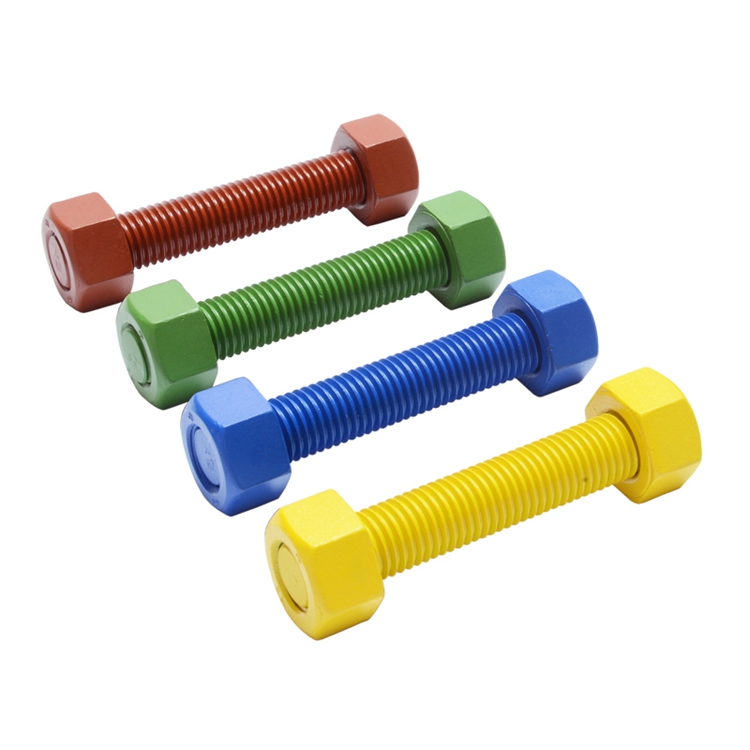Spherical Leveling Washers Manufacturing and Production Solutions for Optimal Performance
Dec . 09, 2024 17:22 Back to list
Spherical Leveling Washers Manufacturing and Production Solutions for Optimal Performance
The Importance of Spherical Leveling Washers in Manufacturing
In the contemporary manufacturing landscape, the quest for precision and stability in machinery and equipment assembly has never been more critical. One component that often goes unnoticed but plays a crucial role in achieving this precision is the spherical leveling washer. These specialized washers are essential for a wide range of applications, from construction to aerospace, where stability and load distribution are paramount.
What Are Spherical Leveling Washers?
Spherical leveling washers, also known as leveling feet or spherical washers, are designed to compensate for any irregularities in the surfaces they are used on. Unlike standard flat washers, these washers feature a spherical design that allows them to conform to uneven surfaces or angles. This unique shape enables the washer to distribute loads evenly, reducing stress on the components they support.
These washers are typically made from durable materials such as stainless steel, which provides excellent resistance to corrosion and wear. The manufacturing process for spherical leveling washers involves precise machining to ensure that the curvature is optimal for effective load distribution. This attention to detail is what sets high-quality factories apart in the production of these essential components.
The Benefits of Spherical Leveling Washers
1. Enhanced Stability One of the primary benefits of using spherical leveling washers is the enhanced stability they provide. When applied in machinery settings, they help maintain balance and prevent tilting, which can lead to equipment malfunction or failure.
2. Load Distribution The spherical design enables these washers to distribute loads evenly across a larger surface area. This feature is particularly important in applications where heavy machinery is involved, as it reduces the risk of localized stress concentrations that could lead to material fatigue.
spherical leveling washers factory

3. Compensation for Uneven Surfaces In many industrial environments, surfaces are rarely perfectly level. Spherical leveling washers can adjust to variations in surface flatness, ensuring that the equipment maintains its designed operational characteristics.
4. Versatility These washers are used across various industries, including automotive, aerospace, and construction. Their ability to provide stability makes them an invaluable component in numerous engineering applications, whether it be in leveling machinery or fixing structural elements.
5. Durability High-quality spherical leveling washers are designed to endure the rigors of industrial environments. Their resistance to wear and corrosion ensures that they maintain their integrity over time, reducing the need for frequent replacements and minimizing downtime for machinery.
Manufacturing Considerations
When looking for a reliable factory that produces spherical leveling washers, several factors come into play. Quality control is paramount; a factory should adhere to stringent manufacturing standards to ensure that each washer meets specific dimensional and performance criteria. Advanced machining techniques, such as CNC (Computer Numerical Control) machining, are often employed to achieve the precise curvature and tolerances required.
Factories also need to maintain effective quality assurance protocols, conducting regular inspections and tests to verify that each batch of washers conforms to industry standards. This attention to detail not only enhances the reputation of the factory but also ensures the reliability of the washers in critical applications.
Conclusion
Spherical leveling washers may be small components, but their contribution to the stability and effectiveness of machinery is significant. As industries continue to push for higher levels of precision and reliability, the demand for quality spherical leveling washers will undoubtedly grow. Manufacturers that focus on delivering superior products through advanced engineering and careful quality control will play a vital role in this evolving landscape. By investing in these small yet critical components, industries can ensure that their operations run smoothly, efficiently, and safely, paving the way for future innovations and successes.
Latest news
-
High-Quality Panel Stud Bolt Reliable Panel Stud Bolt Factory & Suppliers
NewsJul.08,2025
-
High-Precision Fine Thread Locknuts Manufacturer & Supplier Custom Solutions
NewsJul.08,2025
-
PH Imperial Stud Bolt – High Strength Fasteners from Leading Supplier & Factory
NewsJul.07,2025
-
High-Quality Allen Wrench Bolts Leading Factory, Company & Suppliers
NewsJul.07,2025
-
Wholesale Ball Stud Bolt - High Quality Supplier & Factory Price Reliable Wholesale Ball Stud Bolt Company
NewsJul.06,2025
-
High-Strength Alloy Bolts Manufacturer & Supplier Quality Alloy Fasteners Factory
NewsJul.06,2025
